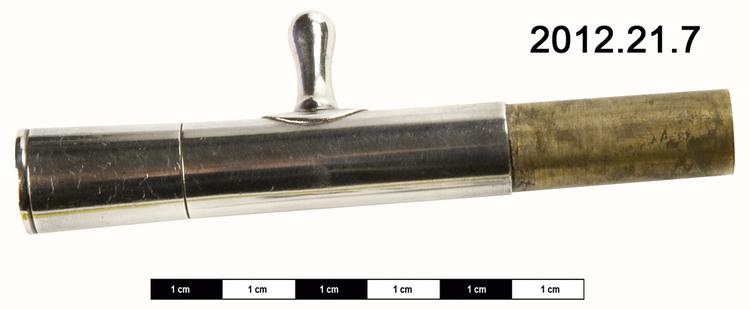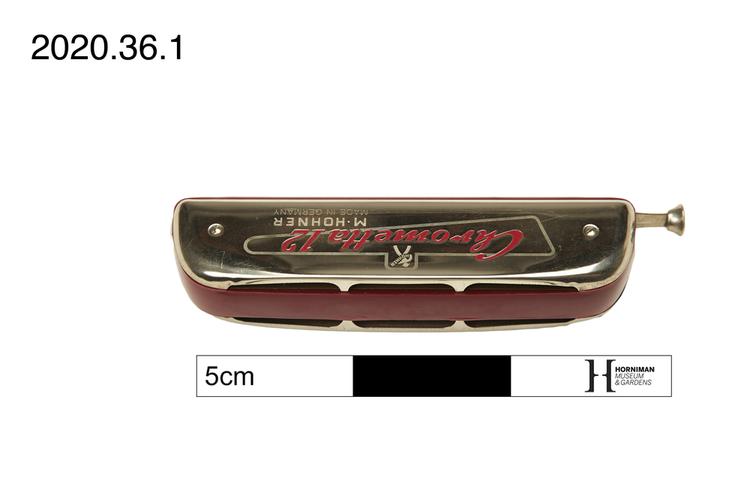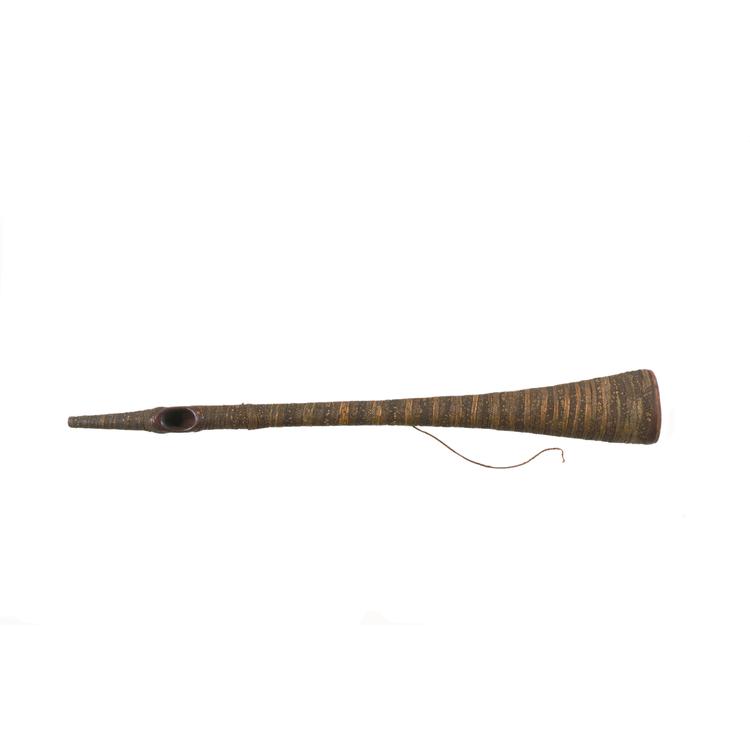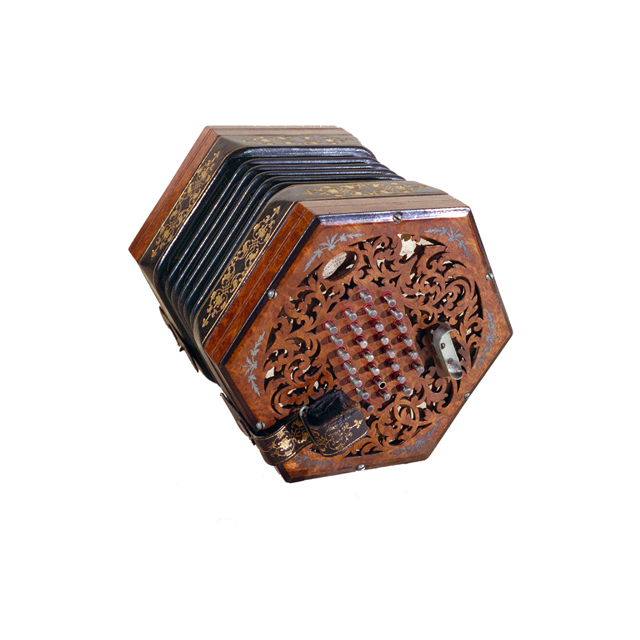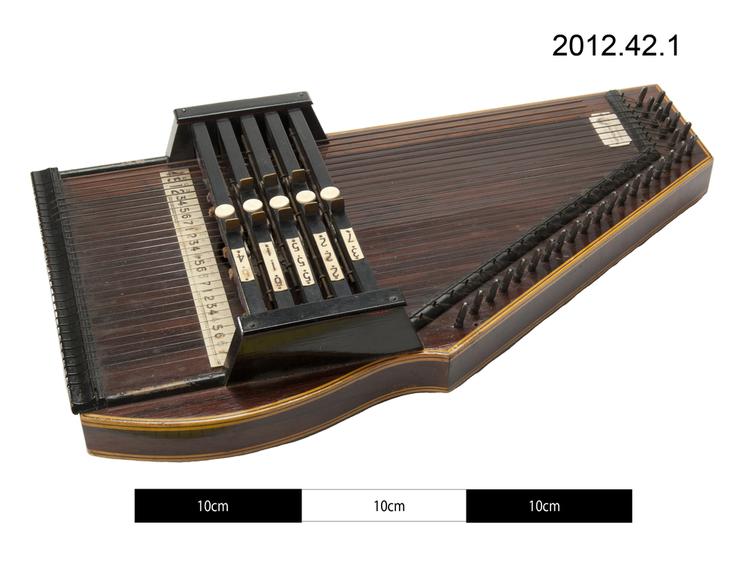
One autoharp made in Philadelphia, USA, between 1885 and 1893. A celluloid plaque beneath the bass tuning pins is stamped ‘C.F.Zimmermann’s/AUTOHARP/ Pat’d May 9th 1882’/ Baldwin & Glasser…Philadelphia’. A round printed label pasted inside the back of the instrument beneath the soundhole reads: ‘C.F.ZIMMERMANN’S/Miniature/AUTOHARP/Patented May 9 ‘82/WITH SIMPLIFIED NOTATION/OF MUSIC. Cedarwood soundtable with redwood base on three brass feet. Five wooden bars with shifters, the shifter triggers are soldered metal tabs. The bar labels are celluloid, as is the tuning label. 28 single courses of strings. 7 of the bass strings are overwound, the three lowest with copper wire. The compass is three octaves from C3 to C6 (C to c2) with two additional g strings in the bass, labelled as follows: g G C D e f g a b c d e f f# g a a# b c d e f f# g a a# b c 4 5 1 2 3 4 5 6 7 1 2 3 4 4 5 6 6 7 1 2 3 4 4 5 6 6 7 1 The soundboard is cracked.



